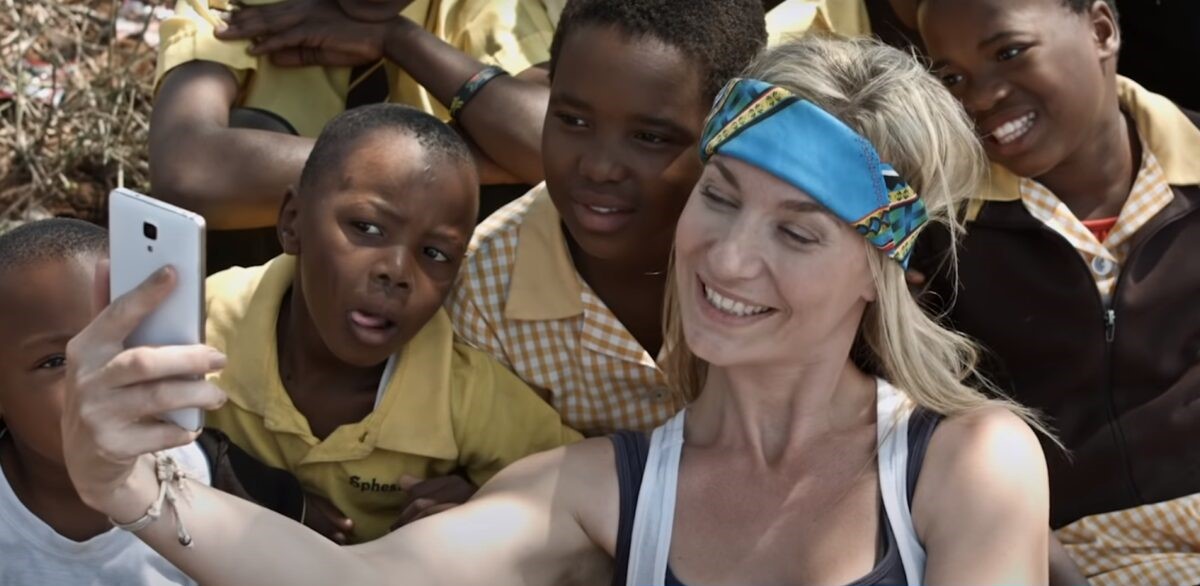By Maria-Nefeli Andreadaki,
At a time when racism and bigotry run rampant throughout the world, every single one of us needs to stay informed, and educated and use our privilege to amplify the voices of the unheard. It is also important to recognize behaviors that might stem from genuine concern and desire to help, but are ultimately harmful to oppressed/ less privileged people and communities.
The image of a white celebrity surrounded by African children is very familiar to most of us (I vividly remember such images being used in my English textbooks growing up!), as is the portrayal of a powerful (white) person taking a stance against racial discrimination in movies. What these, and a lot more, examples have in common is the so-called “white savior complex”, which means that a white person uses their privileged position to seemingly guide, protect or help with the struggles that people of color face. What’s wrong with that is that white saviorism actively perpetuates white supremacist ideology by putting the white “hero” in the spotlight instead of solving the very serious problems that people face due to their skin color.
But why is the contribution of rich white celebrities or seemingly altruistic white people harmful to black, indigenous, and other people of color (BIPOC)? Well, it honestly depends on how this contribution is actively approached and executed. Picture me this; a white singer is surrounded by happy black children in Uganda, they are seen taking a stroll in a village devoid of roads, schools, safe houses, and infrastructure. Said singer talks to the locals, raises a considerable amount of money to gift them, and shortly after returns to the comforts of their luxurious American mansion. What does the singer gain? Even more exposure, positive media coverage, and the image of the kind-hearted, down-to-earth, altruistic hero, who was oh-so-helpful and giving to people in need. What do the “happy black children” gain? Other than the money that might be used in the building of a school or two, that will not be taken care of by the rich heroic celebrity ever again, they are left with the world once more perpetuating the dangerous stereotypes of the poor, disadvantaged children that are at the mercy of white charity, instead of viewing them as respected human beings who are abused by the unjust system that was put into place by white people and for white people.

So how do we unlearn our white biases and get rid of this harmful complex? We can start by listening to and amplifying their voices, their first-person experiences and problems, and their real-life stories. We need to educate and familiarize ourselves with their struggles, without the mediation of a white author, film-maker, artist, etc. You cannot claim to have studied black culture when the books are written by white authors, or that you condemn Asian hate after watching a documentary by a white director. Authentic experience needs to be put on the forefront, it needs to be directly supported and firmly highlighted. White people are not considered allies when they lead protests about indigenous people’s rights or when they talk about themselves during a Black Lives Matter event. They show allyship, however, when they use their privilege to secure the space needed for the empowerment of oppressed voices when they stand up to the hate that is spewed by bigoted white people and make a point to correct them when they ultimately make sure to listen and act on what has been asked of them, not what they think might be beneficial.
I hope this article made us all rethink our stance in fighting discrimination and standing up for what is right. The gap between intent and impact is essential and we should all strive to make a difference by listening and acting according to what has been asked of us. It is not a competition or an opportunity for self-promotion; it is about being decent human beings and contributing with what has been incidentally (and not through our efforts) given to us in creating a fairer, safer world for everyone, especially for the oppressed and discriminated.
References
- The White-Savior Industrial Complex. The Atlantic (2012) Available here
- What Is White Savior Complex and Why Is It Harmful? Health (2023) Available here




